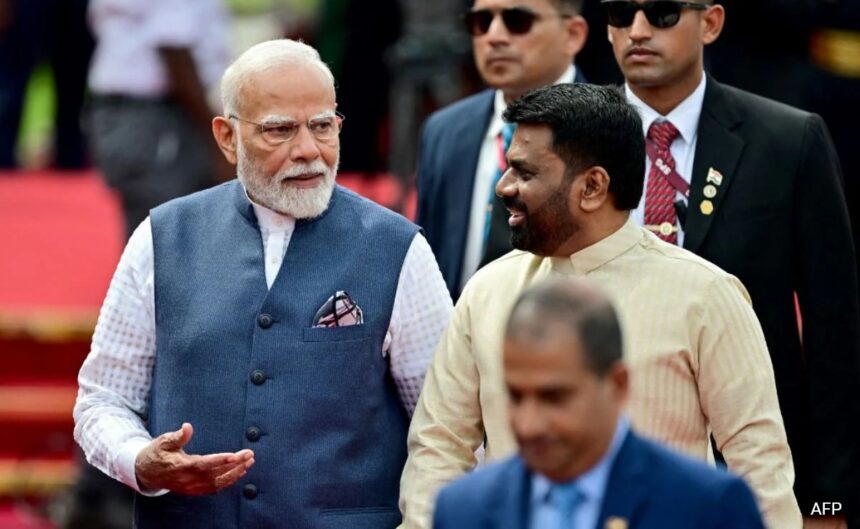India and the United Arab Emirates have joined forces to develop an energy hub in Sri Lanka, marking a significant step in strengthening ties between the three nations. This agreement comes as a response to the growing competition between India and China in the strategically important Indian Ocean island nation.
The pact for the energy hub was signed during Prime Minister Narendra Modi’s historic visit to Sri Lanka, the first by a global leader since President Anura Kumara Dissanayake took office in September. This visit underscores the deepening relationship between New Delhi and Colombo, especially in the wake of Sri Lanka’s severe financial crisis in 2022, during which India provided $4 billion in financial assistance.
The energy hub, located in the key city of Trincomalee in Sri Lanka’s east, will involve the construction of a multi-product pipeline and may utilize a World War Two tank farm, partly owned by the Sri Lankan subsidiary of Indian Oil Corp. Foreign Secretary Vikram Misri highlighted the strategic partnership between India and the UAE in the energy sector, emphasizing the UAE’s role as an ideal partner for this groundbreaking initiative.
The next steps involve selecting business entities to explore the financing and feasibility of projects for the energy hub. Additionally, PM Modi inaugurated a $100 million solar power project, a joint venture between the Ceylon Electricity Board and India’s National Thermal Power Corp, further enhancing the energy cooperation between the two countries.
Furthermore, India and Sri Lanka successfully concluded their debt restructuring process, with Sri Lanka owing approximately $1.36 billion in loans to EXIM Bank of India and State Bank of India. The debt restructuring talks were initiated after Sri Lanka defaulted on its debt in May 2022, with bilateral creditors including Japan, India, and China signing a preliminary deal last June.
In addition to the energy cooperation and debt restructuring, India and Sri Lanka also signed agreements in areas such as power grid connectivity, digitalization, security, and healthcare. These collaborations reflect the commitment of both nations to enhance their partnership across various sectors for mutual benefit and regional stability.
Overall, the development of the energy hub in Sri Lanka signifies a significant milestone in the strategic alliances between India, the UAE, and Sri Lanka, positioning them as key players in the evolving geopolitical landscape of the Indian Ocean region.








